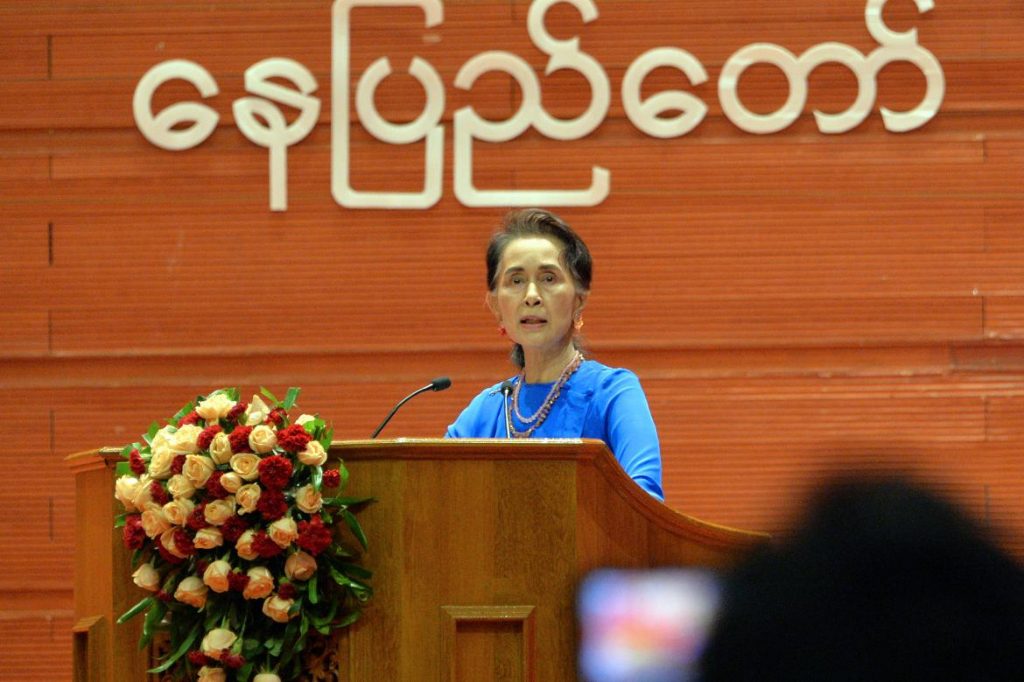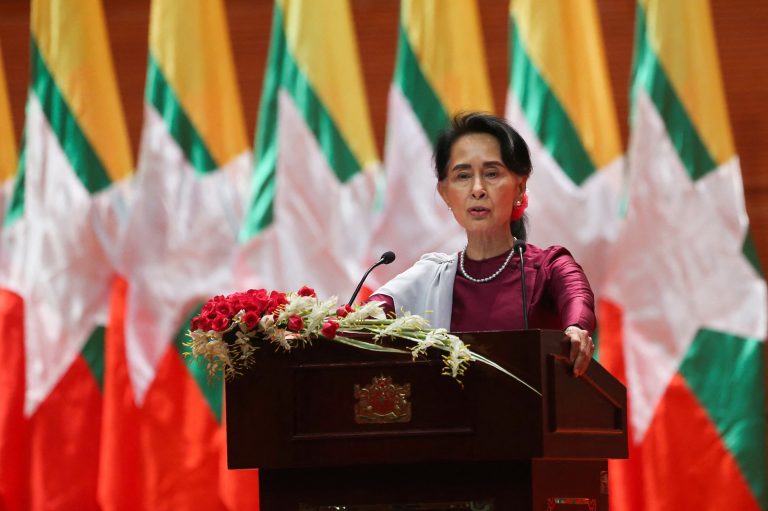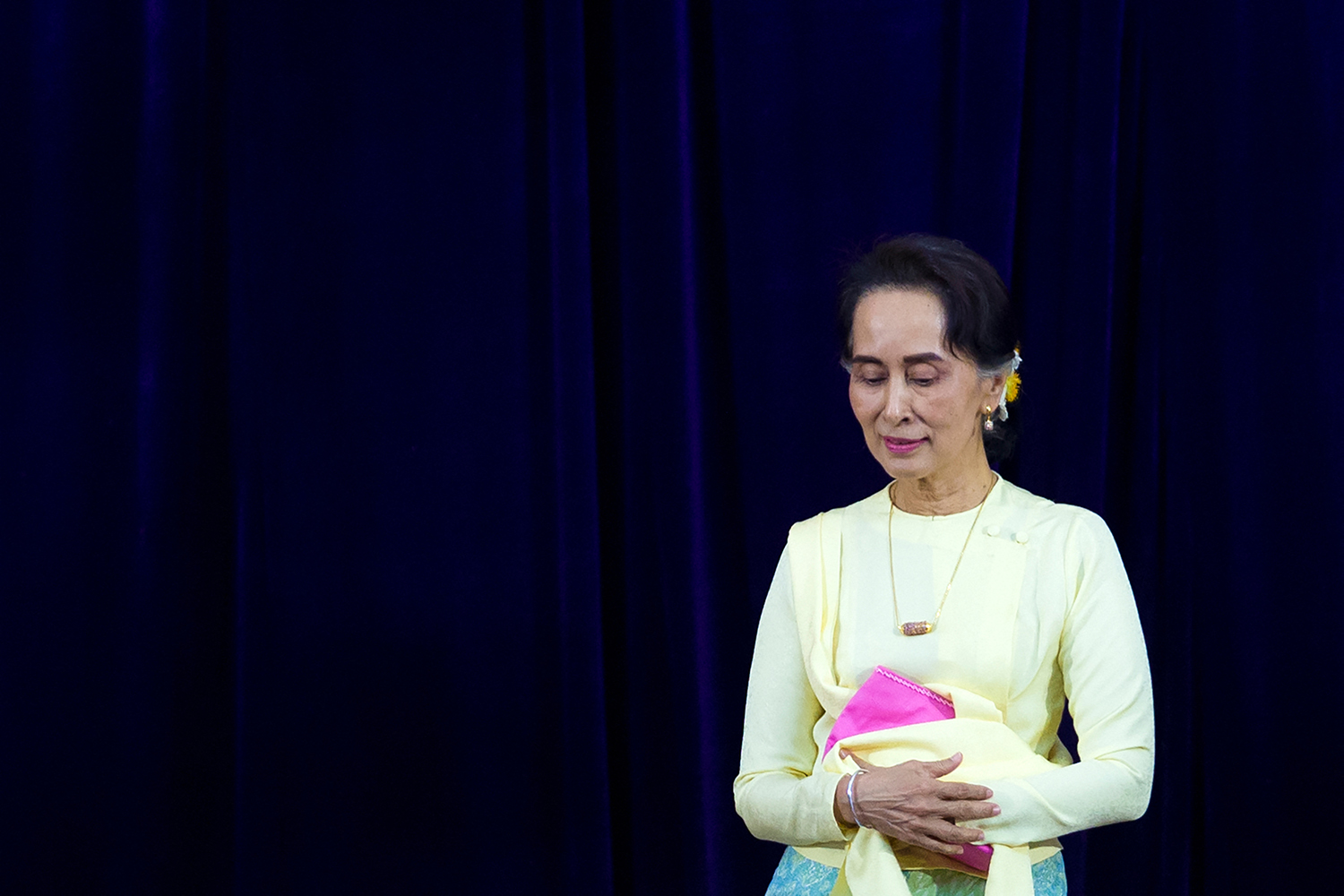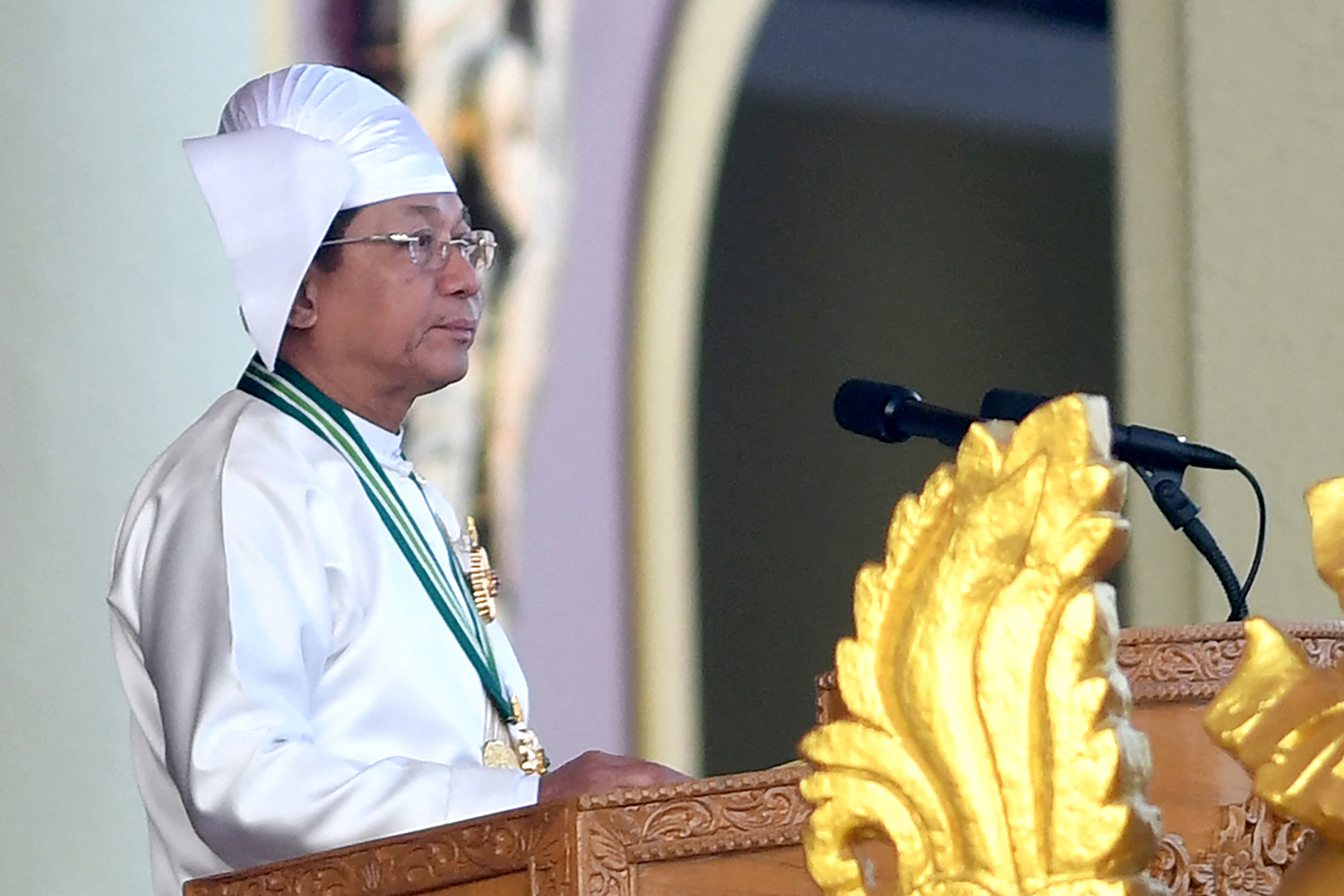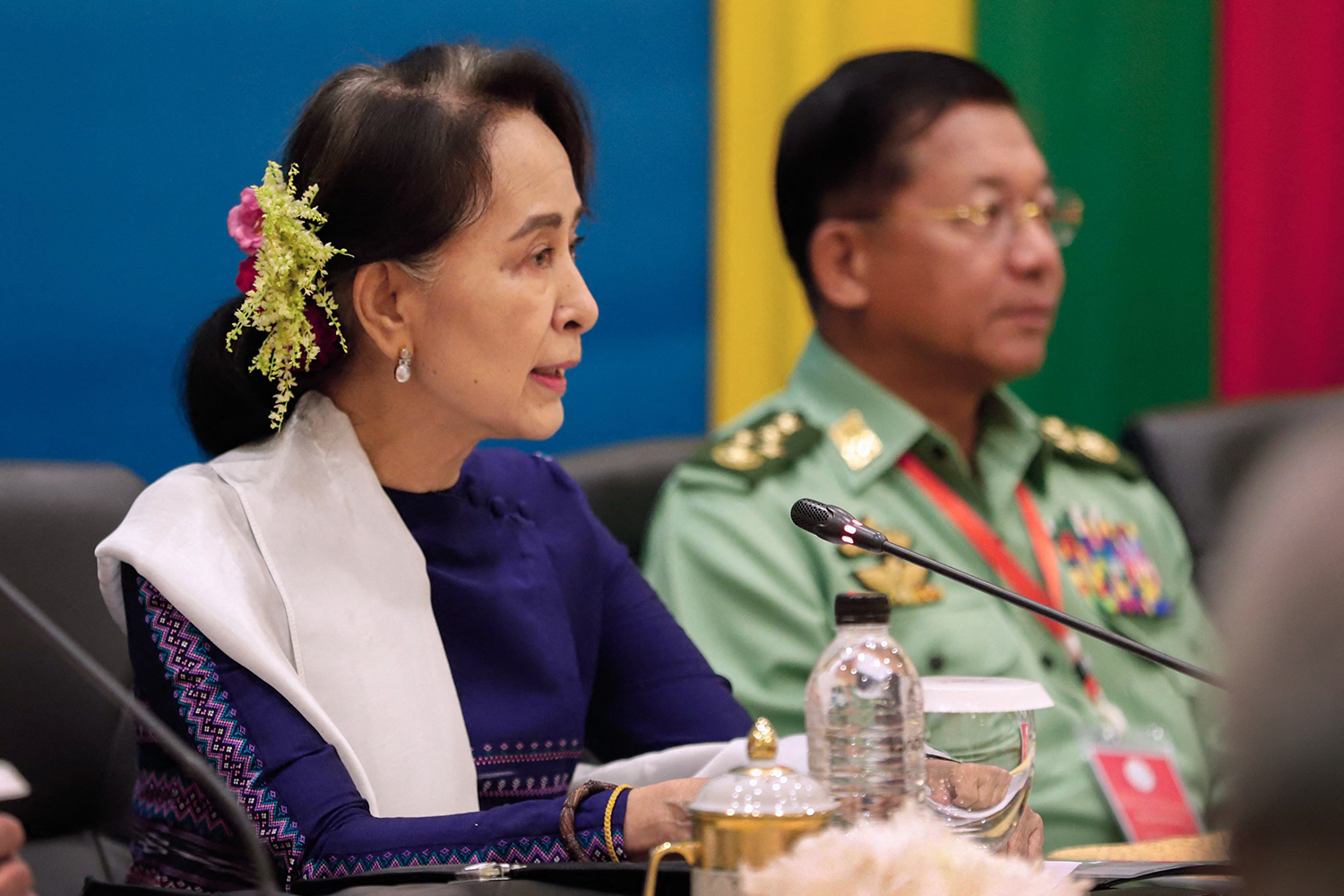By FRONTIER
Myanmar is at a crossroads, says a gloomy assessment of the National League for Democracy government as it marks the half-way point of its five-year term in office.
State Counsellor Daw Aung San Suu Kyi is sharply criticised in the assessment, “Myanmar’s Stalled Transition”, released by Brussels-based think-tank, International Crisis Group, on August 28.
“Her government is a disappointment – seemingly inept at governance and complicit in the forced mass flight of Rohingya Muslims” to Bangladesh, ICG said in the 16-page report.
“On a range of key issues, from the economy to talks with ethnic armed groups, the government appears stuck, unable to formulate and carry out strategy or unwilling to make difficult decisions,” it said.
Support more independent journalism like this. Sign up to be a Frontier member.
“Of most immediate concern, the Rohingya crisis has no resolution in sight.
“The military’s brutal treatment of the Rohingya, involving crimes against humanity, and the Suu Kyi government’s acquiescence therein, became a defining new crisis.”
ICG said the government’s policy challenge was to achieve tangible progress while maintaining a principled stand on crimes against humanity.
“External pressure can be important but is unlikely by itself to produce results. Robust diplomatic engagement, including by the UN special envoy [Ms Christine Schraner Burgener], will be required to translate such pressure into meaningful change,” it said.
The report said that even were the government to develop the political will to respond constructively to the Rohingya crisis or other problems, progress was likely to be limited.
ICG said the “sky-high expectations of what Aung San Suu Kyi could achieve were never justified” because of structural obstacles and the power-sharing arrangement with the military imposed by the constitution.
“Even against more realistic benchmarks, however, the new government has underperformed on the peace process, governance and the economy,” it said.
The ICG said the government’s relative incapacity and inexperience was preventing it from making progress on key issues.
It described the cabinet selected by Aung San Suu Kyi as “underwhelming for a leader of unparalleled popularity who had the whole country’s talents to draw upon”. It was clear that in making cabinet appointments trust was given priority over capacity, said the report, which also noted that decision-making had been heavily centralised in the State Counsellor’s hands.
“The result has been muddy decision making, focused on minutiae of procedure rather than the articulation of any clear vision or policy direction,” it said.
Despite Aung San Suu Kyi having made national reconciliation her top priority, the peace process had stagnated, a development that reflected “a broader stasis of government, with decisions made in an obscure and apparently ad hoc manner”.
ICG said the biggest weakness in the peace process, apart from capacity, was a lack of leadership from the top.
“Despite continued discussions among the parties, including the third Union Peace Conference in July 2018, a negotiated end to the country’s interlocking conflicts remains out of sight,” it said.
The report said the NLD had come under sharp domestic criticism over its handling of the economy, reflecting a lack of confidence in the government’s policies, but acknowledged positive steps, such as the new companies law and a shake-up at the Myanmar Investment Commission.
On civil liberties, it said many voters were disappointed that they had not expanded under the NLD government.
“A far greater number of journalists and social media users have been prosecuted for criminal defamation in the Suu Kyi administration’s half-term than in the whole term of the previous government,” it said.


